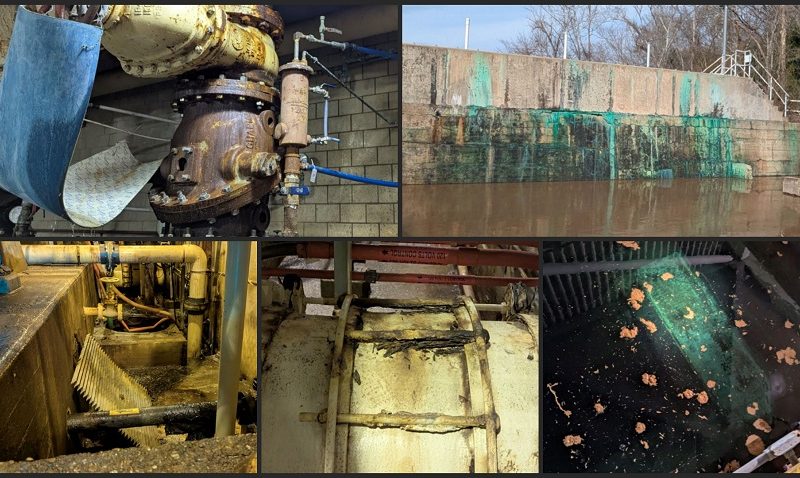Richmond, Va. – A months-long investigation into the catastrophic January water crisis that left thousands without clean water in Richmond and surrounding counties has concluded that the incident was “completely avoidable” and stemmed from systemic failures and long-term neglect, according to a new report released Wednesday by the Virginia Department of Health (VDH).
The six-day crisis, triggered by a power outage at Richmond’s primary water treatment plant during a winter storm, disrupted water service for residents in the city as well as in Henrico, Hanover, and Goochland counties. While some residents experienced little or no water pressure, others were forced to boil water before use, as the plant failed to maintain safe operational standards.
In its report, the VDH placed the blame not on a singular event, but on what it called a “decades-long pattern of neglect” by Richmond’s Department of Public Utilities (DPU). The report was conducted in partnership with the engineering firm Short Elliott Hendrickson, Inc. (SEH) and included both a root cause analysis and a forward-looking needs assessment.
Five Areas of Failure Identified
The report examined five key operational areas—manpower, machinery, materials, methods, and measurements—each of which contributed to the plant’s failure.
Manpower: Investigators cited a critical lack of trained electrical staff, particularly on the night shift when the power outage occurred. The DPU’s reliance on manual operations without adequate support personnel was described as a major vulnerability.
Machinery: Key infrastructure at the plant, including Uninterrupted Power Supply (UPS) battery systems, had not been properly maintained and were well beyond their expected lifespan. The report states that had those systems been regularly tested and replaced, the outage and ensuing flooding could have been prevented.
Additionally, the automatic power transfer system—known as the “bus tie”—malfunctioned. Its failure allowed flooding of underground equipment rooms, exacerbating the duration and severity of the crisis.
Materials: The facility was not equipped with sufficient overflow piping to manage heavy water flow, a shortfall that the DPU had reportedly known about for decades but never addressed. This design flaw allowed floodwaters to damage key systems during the storm.
Methods: At the time of the incident, the plant was operating in “Winter Mode,” a configuration that relies solely on the main power feed. While intended as a cost-saving measure, this setup left the plant vulnerable during the height of a winter weather event—a decision the VDH called “recklessly shortsighted.”
Measurements: According to the report, critical alarm systems and valve controls failed to respond when the facility began to flood. If functioning properly, these controls could have prevented significant damage and service disruption.
A Culture of Complacency
Beyond technical issues, the VDH criticized what it described as a “complacent and reactive organizational culture” within the DPU. Inspectors found evidence of equipment left in disrepair for extended periods and a lack of preparedness for emergency scenarios.
In a letter accompanying the report to Governor Glenn Youngkin and Richmond Mayor Danny Avula, the VDH stated, “This was not a one-time failure, but a reflection of systemic issues that have been ignored for far too long.”
Recommendations for Reform
The report calls for a sweeping overhaul of the DPU’s operational procedures, staff training, infrastructure maintenance, and emergency preparedness. Among the immediate changes already implemented is the suspension of “Winter Mode” operations, with the department returning to a more resilient dual-feed power system.
City officials have not yet issued a full response to the findings, though Mayor Avula previously acknowledged the need for significant reform in the wake of the crisis. A public hearing is expected to be scheduled in the coming weeks.
The VDH concluded its report with a stark warning: “Unless there is a fundamental shift in how this utility is managed, another crisis is not a matter of if—but when.”











